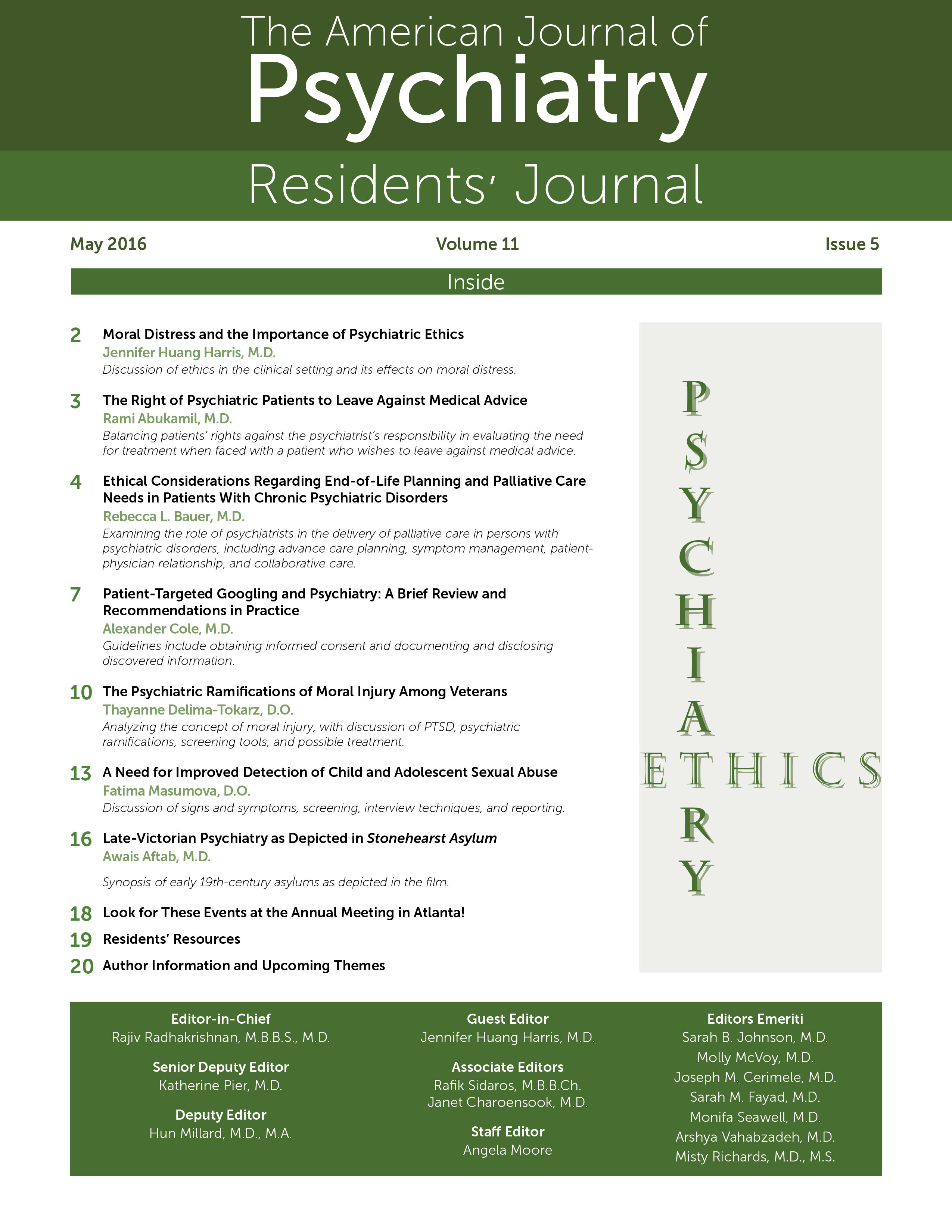Andrew Jameton originally defined moral distress as “when one knows the right thing to do, but institutional constraints make it nearly impossible to pursue the right course of action” (
1). The concept of moral distress is significant because it considers the consequences to an individual when ethics fail to be translated to practical application, and is particularly illuminating in the context of psychiatry.
Most of the research thus far has focused on the field of nursing, in which the distress is created by the “lack of power and control over the resources necessary for them to fulfill their role obligations” (
1). In contrast, the moral distress of psychiatrists emerges from the “nature of the role itself,” in the conflicting responsibilities inherent in the power they possess (
2).
Psychiatry is unique among the medical specialties in its power to infringe upon the rights of patients and treat them against their will (
2). This power is granted to psychiatry by society because the pathology of its patients lies in their “will”—their ability to discern reality, reason logically, and make accurate judgments. The psychiatrist is called upon to substitute his or her own judgment for that of the patient’s. However, this power is granted to the psychiatrist with responsibilities to both the patient and society, and the psychiatrist must often mediate between the often conflicting responsibilities.
For example, we often encounter the situation when we are asked to evaluate a patient whose family members demand hospitalization and medication against the patient’s will, even when the patient is not clearly a danger to him- or herself or to others. In such a case, whose needs do we serve? The patient’s or society’s?
The conflicting responsibilities create a series of antagonist relationships that contribute to moral distress in psychiatric providers (
3). There is the antagonistic relationship with the patient, as above. On the consult service, antagonism with the patient can occur due to the perceived threat of being labeled incompetent or insane, and antagonism with the primary team occurs when psychiatrists are asked to resolve ethical dilemmas by deeming the patient incompetent (
4). There is the antagonistic relationship with society, when the psychiatrist must act in fear of reprisal from the law.
Dangers lie on all sides. If the patient whom we deemed safe to return home were to kill him- or herself or others or be the perpetrator of a mass shooting, the evaluating psychiatrist would be held responsible for predicting the future. Yet if we fail to balance this responsibility to society with responsibility to the patient, we run the risk of becoming the psychiatrists complicit in the Nazi extermination of the mentally ill and the hospitalization of political dissenters in the Soviet Union.
Ethics is fundamental to the practice of psychiatry, and lack of ethical discussion in clinical settings is correlated with moral distress (
2,
5). Without clear delineation of our responsibilities and limitations, we carry a burden of guilt and inadequacy (
3). We need clear thinking in psychiatric ethics so that we act for the good of both our patients and society, preserve our integrity, and retain our ability to engage in our work (
5).
